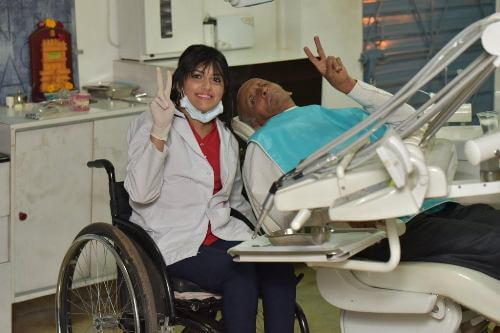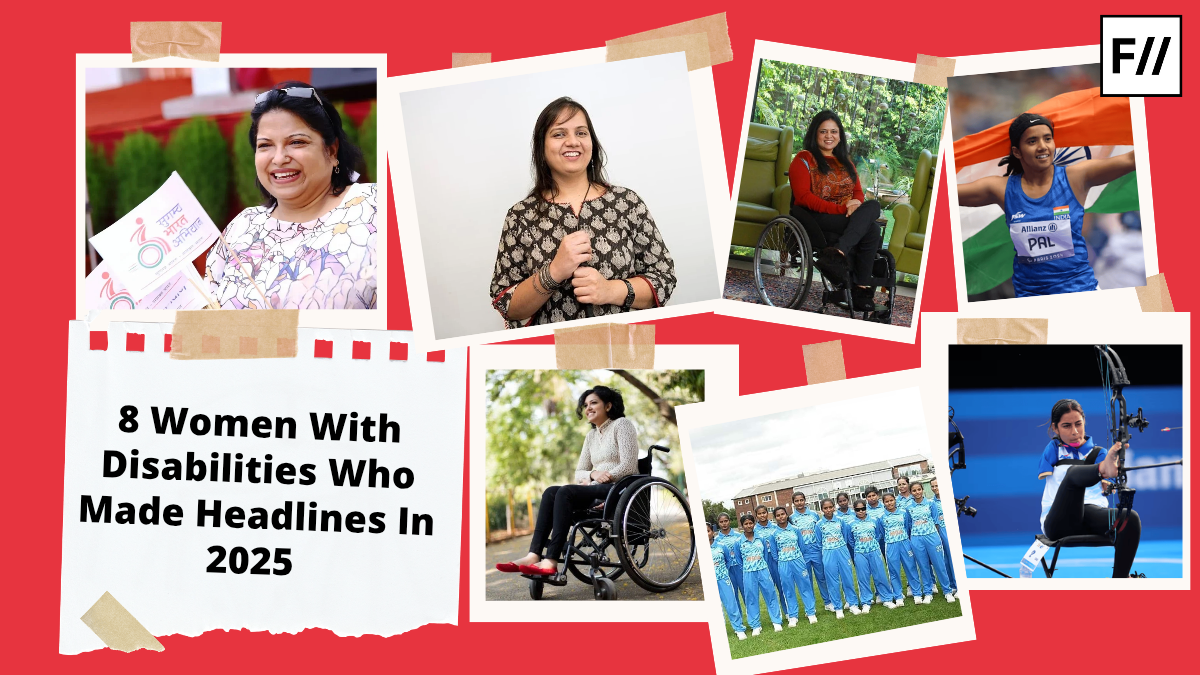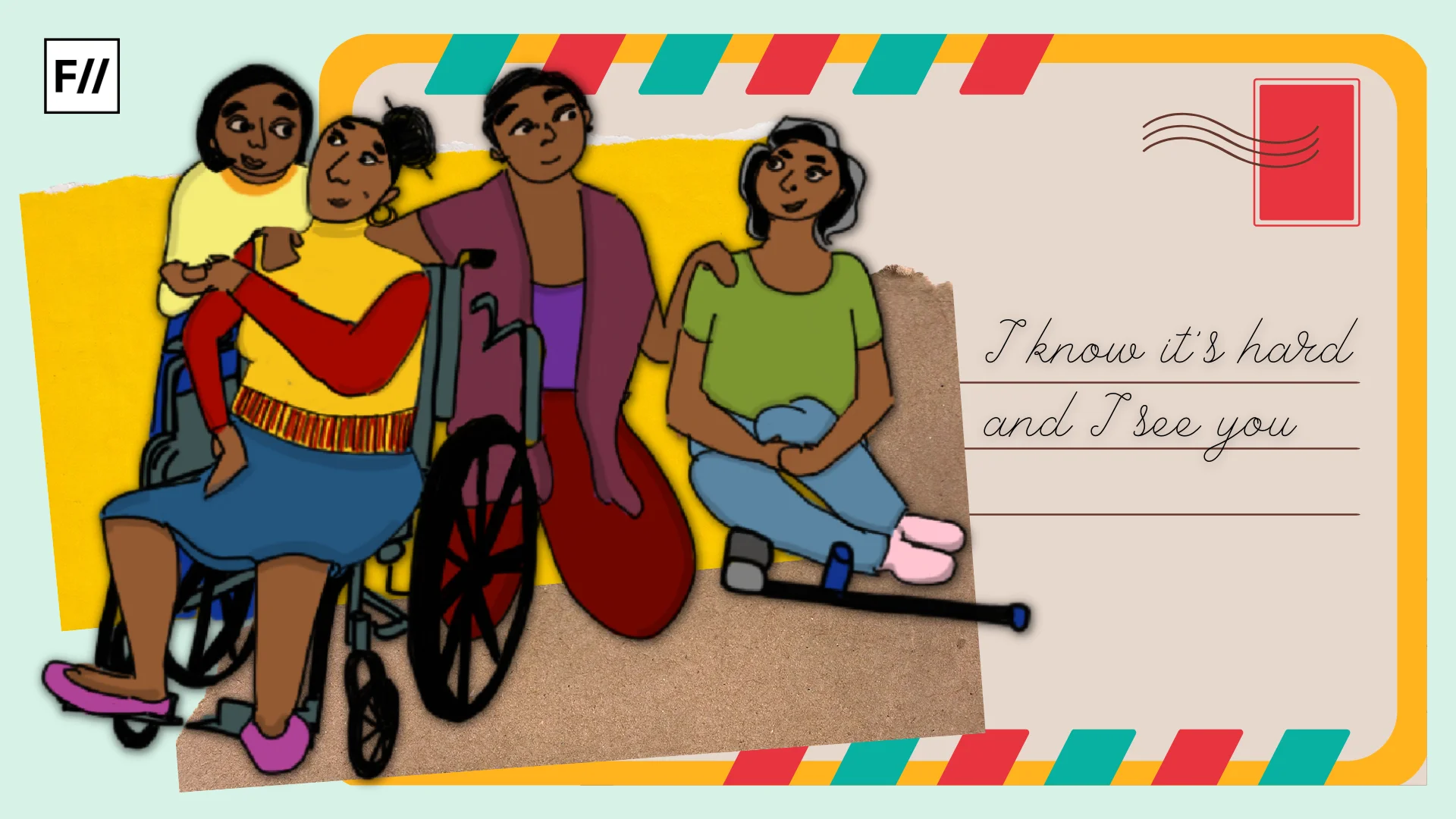UPDATE: The Health Ministry acknowledged the arguments made in the letter and consequently a meeting was held to discuss the existing MCI guidelines.The members were requested to regulate the standard of medical education in the country to examine the matter and make recommendations. After a long discussion, the panel collectively agreed to slash the arbitrary upper limit of 80% in case of locomotor disability; disagreed with the AIIMS’s psychiatrist recommendation that Specific Learning disabilities are not quantifiable and allowed those with learning disabilities of 40% or more to pursue medical education in PH quota.
However, the admission policy for students with visual and hearing disabilities remains unchanged. Also, the panel did not acknowledge the issue of inclusivity in policy making process, thereby not a single member from ‘Doctors with Disability’ group was invited to attend the meeting. Although the changes made will benefit many who filed their cases but there are other rejected students too who did not come forward to challenge the discriminatory guidelines.
Several medical students with disability had to face admission denials as well as cancellation because of the formulation of ‘Guidelines for person with specific disability’ issued by the MCI (Medical Council of India). The cancellation trail violates the Rights of Persons with Disability Act, 2016 and the United Nations Convention on Disability Rights, which guarantees non-discriminatory opportunities for people with disability in educational institutions.
In response to it, a group of 75 doctors with disability have written a letter to the Union Health Ministry rejecting the unfair guidelines while appealing for a reformulation. Addressed to Union Health Minister, J P Nadda, the letter highlights the multiple litigation filed by students; lack of infrastructural support and disabled-friendly legislation operating in other countries.
Besides instructing the MCI to reframe their existing guidelines, the letter brings to light the non-inclusive committee which doesn’t involve doctors with disability as well as organisations working closely with disabled people.
The Supreme Court of India had observed in a civil writ petition (Puruswani Ashutosh (minor) through Dr Kamlesh Virumal Pursuswani versus Union of India & Ors) that the MCI (Medical Council of India) committee’s recommendation was not complied with and was pending before the Central government for its consideration. The matter is scheduled to be heard on August 21, 2018. The court had also observed that “it is open to stakeholders for disabled categories including the petitioners to submit a representation to Central Government.” Accordingly, the letter was submitted by the doctors expressing their concern over seat cancellation in medical institutions.
Multiple Filed Litigation
There have been various cases of admission cancellation in the past culminating into extended legal debate and even rare victories. On August 9, 2018, a 17-year-old student at the University College of Medical Sciences (under Delhi University) was asked to surrender the seat as the medical board found that his disability is between 21-39 % making him ineligible for the People with Disability (PwD) quota.
Addressing to the National Thalassemia Welfare Society, The Directorate General of Health Services (DGHS) wrote a letter on the cancellation of his admission. Vikas C Goyal, President of the Haemophilia Federation, in his letter said, “The student’s tale highlights a problem of neglect, and delays, that plague almost every government office in the country.”
A similar story came to light back in 2017 in the month of September where a Thalassemic girl (Sruchi Rathore) from Chhattisgarh was denied admission in a medical course leading up to the Sruchi Rathore versus Union of India court petition. As soon as the SC ruling came out in the petitioner’s favour, another student with disability (Digant Jain) at Guru Gobind Singh University was disallowed to sit for counselling sessions despite clearing the specified admission requirements.
Cut to June 2018, a medical aspirant (Ashutosh Puruswani) with low vision filed a petition demanding that the authorities issue him a disability certificate and grant him admission under the reserved category in an undergraduate course through NEET, 2018. He alleged that the denial of the certificate meant that he is being denied the benefit of such provisions. This civil writ petition is being taken into account in the ongoing legal debate over discriminatory MCI guidelines.
He asserts, “Due to inaction on the part of Respondent State Government and its various departments, the petitioner, despite suffering from low vision, which is a scheduled disease under the disability Act 2016, is unable to get the disability certificate. The petitioner has made various oral representations but the Respondent State Government till date, has failed to discharge its constitutional obligation.”
Non-Inclusive Framework
The Doctors with Disability group have come forward to engage with the weak points of the newly formulated MCI guidelines. Dr Satendra Singh, Professor at University College of Medical Sciences and disability rights activist, talks about the non-inclusivity in the committee as a major problem in the current medical system.
In his editorial in the Indian Express, he says, “Surprisingly, a psychiatrist from AIIMS framed the guidelines for dyslexia and recommended that candidates with this learning disability as well as those with autism are not suitable to pursue medical education under the disability quota. Usually, a paediatrician, psychologist and neurologist see dyslexic candidates but they were never consulted.”
Further deliberating on the issue of non-inclusivity in the committee, he states, “Policy makers and doctors without the lived experience of having a disability must not assume and declare what we can and cannot achieve.”
Along the same lines, Shah Alam Khan, professor at Department of Orthopedics, AIIMS talks about the persisting taboos around people with disability and says, “There is a need to understand that disability is not the problem but rather it is our inability to modify the medical curricula.” He also strikes down arguments made against disabled medical practitioners by citing various successful scientists and doctors from across the world who contributed immensely to the field of medical sciences.
Talking about the importance of doctors with disability, he says, “Simply put, the skills of a physician are nothing more than the practice of compassion. A person with disabilities will be more understanding towards a patient in a similar situation.”
Disabled Practitioners Abroad
Unlike the situation in India, medical aspirants as well as practitioners are highly encouraged to enter the field. The General Medical Council, UK has guidelines like ‘Gateways to the Professions’ (2008) and ‘Welcomed and Valued’ (2018) which supports disabled medical students and doctors through education and training based on their respective disability law.
Similarly, the Association of American Medical Colleges 2018 report on ‘Accessibility, inclusion, and Action in Medical Education: Lived Experiences of Learners and Physicians with Disabilities’ by Dr Lisa Meeks talks about the various ways in which people with disabilities can contribute in the field of medical education and patient care.
The new MCI guidelines on the other hand not just sideline disabled medical aspirants by cancelling their admissions abruptly but also excludes successful doctors with disability from the council. The final decision is therefore not privy to them resulting into discriminatory admission policies. Hence, in order to make medical sciences more inclusive, there is an urgent need to reformulate the guidelines.
Featured Image Source: theweekendleader
About the author(s)
Tanya is a post-graduate in Media Studies from Centre for Culture, Media and Governance at Jamia Milia Islamia. She is passionate about music, cinema and lots of street food.




